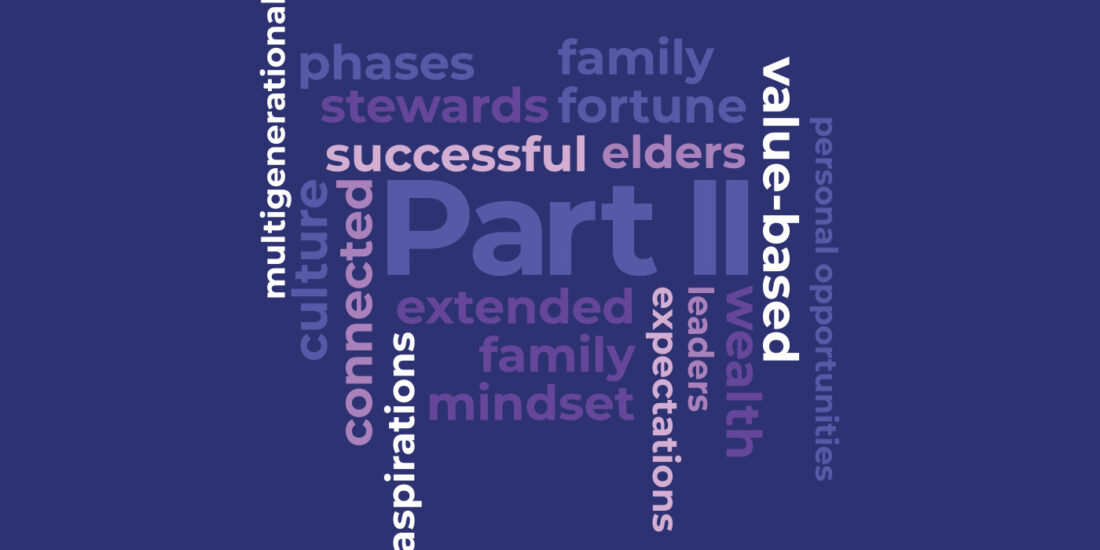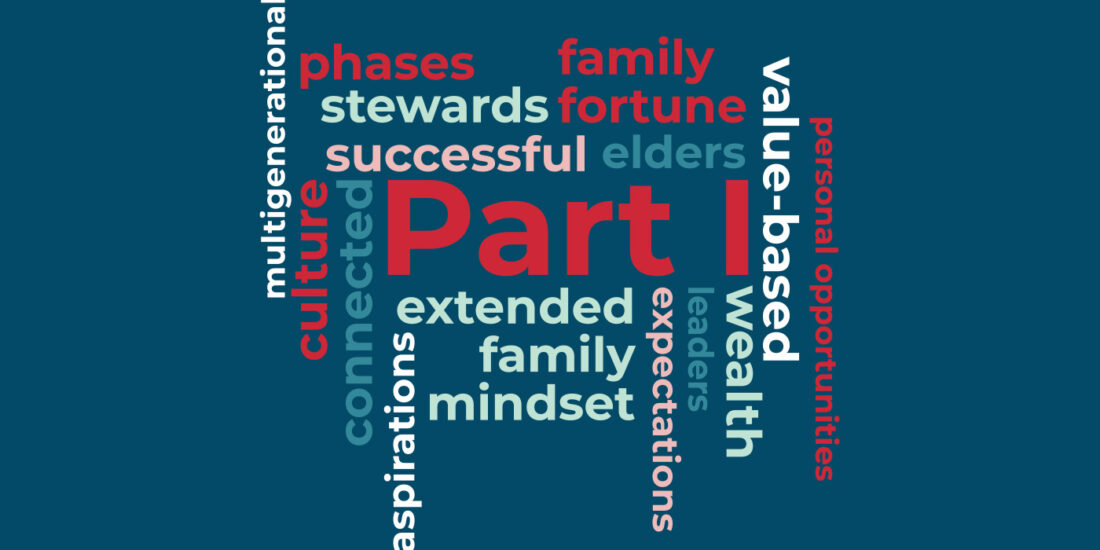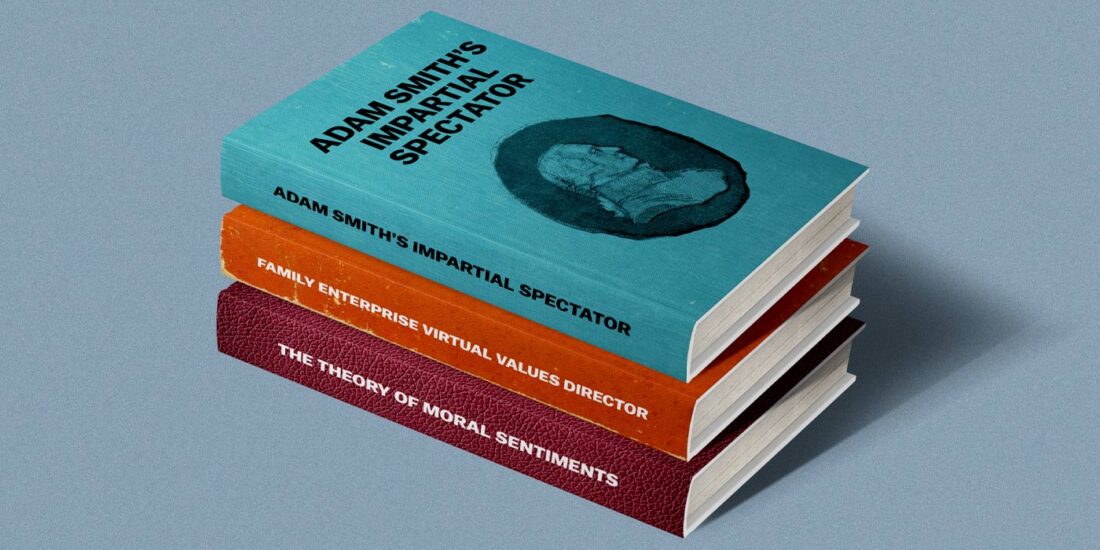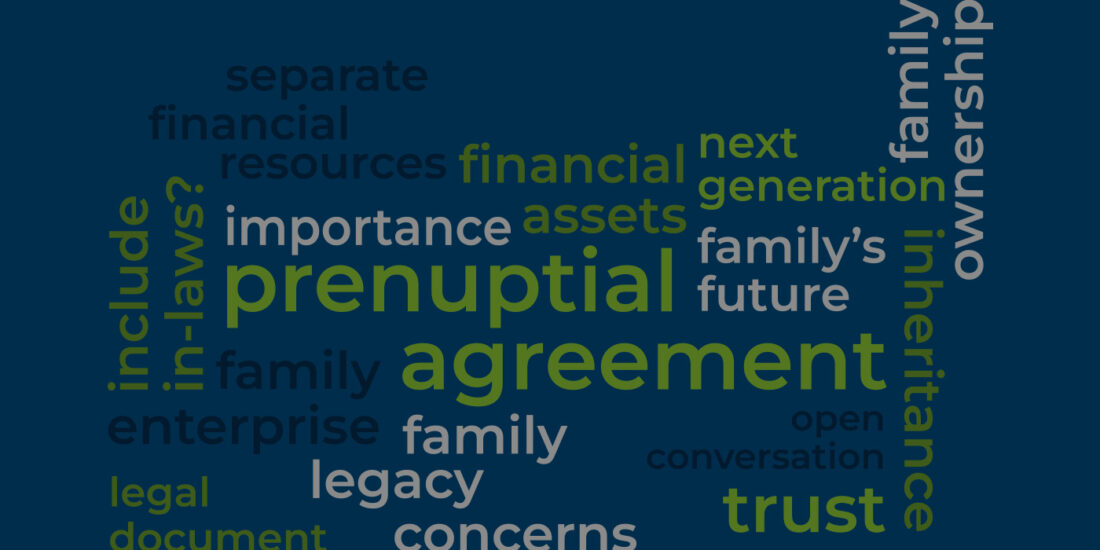
Family Values & Legacy
Authors discuss the significance of family values in family enterprise and their relationship to creating a family legacy.
The 360 Legacy Wheel Balances What Needs to be Preserved and What Needs to be Shared: A Model for Philanthropic Advising
Thank you to Dennis Oteng, member of the 2025 Conference Program Committee, for this article about the 360 Legacy Wheel, a model that can help client families consider which resources to share outside of the family and which to protect within the family.
The Enduring Enterprise: Nurturing a Frontier Mindset
Thank you to the authors of this week’s FFI Practitioner, Devin DeCiantis and Ivan Lansberg, for this article discussing the strategies that enterprising families in emerging and frontier economies deploy to navigate unpredictable environments.
FFI Practitioner Articles We Love: Sian O’Neill of Globe Law and Business
This week we are pleased to continue our series of guest-curated FFI Practitioner articles with Sian O’Neill, founder of publisher Globe Law and Business.
Reimagining Wisdom, Wealth, and Legacy: An Interview with Princess Nandi
FFI Practitioner is pleased to feature a podcast conversation with H.R.H Princess Nandi Zulu, a distinguished member of the Zulu Royal Family, who is part of the 2086 Society's grant to the Nomadic School of Business.
How Wealthy Families Can Instill a Culture of Stewardship Part II: From Value Contribution to Leadership—Increasing Engagement in the Rising Generation
The second part in this article by Dennis Jaffe and Amy Hart Clyne picks up where Part I ends.
How Wealthy Multigenerational Families Can Instill a Culture of Stewardship Part I: Setting Baseline Agreements for Stewardship Behavior
Thanks to Dennis Jaffe and Amy Hart Clyne for this two-part article that draws on their experience working with successful families to create an ongoing value-based culture for the responsible use of wealth across generations.
Reimagining Wisdom, Wealth, and Legacy: An Interview with Krishna Thapa
Continuing our quarterly series on the 2024 FFI conference theme of “Mean Time: Time, Timing, and Timelessness in Family Enterprise,” we are pleased to present a podcast interview with Krishna Thapa, a “warrior monk.”
Reimagining Wisdom, Wealth, and Legacy: An Interview with Maasai Elder Emmanuel Mankura
Continuing our quarterly series on the 2024 FFI conference theme of “Mean Time: Time, Timing, and Timelessness in Family Enterprise,” we are pleased to present a podcast interview the Emmanuel Mankura, an elder in the Maasai tribe.
Reflections on Storytelling and the Development of the “Company Soul”
In this week’s edition of FFI Practitioner, Ricardo Mejía shares his reflections on the importance of storytelling as a way to transmit the “company soul” to the next generation of family owners.
Adam Smith’s Virtual Values Director
This week, FFI Practitioner is pleased to share a second article by Ken McCracken in honor of the 300th anniversary of the birth of economist and philosopher, Adam Smith.
Discussing Prenuptial Agreements with Next-Generation Family Members
In this week’s issue of FFI Practitioner, Matthew Erskine considers the ways that a prenuptial agreement can be an effective tool for family enterprises not only to protect family assets, but to articulate their philosophy and vision for the family’s future.
Family Purpose in Family Firms: What it looks like and why it’s important
Thank you to this week’s contributor, Kendall Cotton Bronk, for her article summarizing the results of a research project exploring the role of family purpose in well-established family enterprises.
The Family Business with a Thousand Faces: How myths and archetypes cast the family business narrative
Thanks to FFI Fellow Guillermo Salazar, a member of the FFI Iberoamérica Virtual Study Group, for this article that explores the relationship between the hero archetype and storytelling in family enterprises.
Dreams, Values, and Thoughts on Communications Strategies for Family-Owned Companies
Thank you to Núria Vilanova, this week’s contributor, for continuing FFI Practitioner’s series of articles written in both English and Spanish by members of the FFI IberoAmerican Virtual Study Group. In this week’s edition, Núria explores the themes of her recent book, which addresses the importance of family enterprises implementing a communication strategy that incorporates the family’s values.
Reflections on the Soul of Family Business
Thank you to this week’s contributor, Tom Hubler, for reflecting on his more than thirty-five years as a family business consultant and sharing some valuable insights he’s gained during that time. We hope you enjoy reading about Tom’s experience and learning about what he refers to as the “soul” of family businesses.
Mid-Autumn Festival: Lessons for family businesses
We hope you’ve been enjoying the month-long FFI Practitioner series dedicated to the theme of “Reflections,” which concludes this week with a piece by Paul Chung and Chin Chin Koh. In this article, the contributors reflect on the ancient Chinese Mid-Autumn Festival and explore its parallels to family enterprise.
Impact Investing: Aligning money, values, and social impact goals
This week, Katherina Rosqueta, from the Center for High Impact Philanthropy at the University of Pennsylvania, explores several approaches to impact investing, an increasingly utilized strategy to align deeply held family values with their financial investment strategy.
Talking Across Generations: Philanthropy as a Communication Tool
Philanthropy is not just a “good” thing to engage in. It is also one of the most effective tools for bridging generational differences in families.
Story Power: Families’ hidden asset
The last in the November series on “transformation in family enterprise” focuses on the power of storytelling – and how it might not be as hard to get started with your clients as you think.
Embedding The Family’s Values by Creating an Ethical Will
Much as I admired Frank Perdue for his success with his family poultry business, I admired him even more for his success as a family man.





















